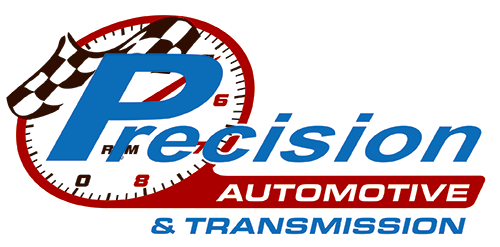Diesel engines are renowned for their durability, efficiency, and longevity. However, to keep them performing at their best, proper diesel engine care is essential. Unlike gasoline engines, diesel engines rely on compression rather than spark ignition, which makes them more fuel-efficient and powerful. However, this also means they require specialized maintenance routines to prevent common issues such as carbon buildup, fuel contamination, and excessive wear and tear.
Regular maintenance is crucial for maximizing the lifespan of your diesel engine. Routine checks and servicing can help detect potential problems before they turn into costly repairs. Understanding how your diesel engine operates and what it needs to stay in peak condition is the first step in ensuring optimal performance. Key components such as fuel injectors, turbochargers, and cooling systems need special attention to function correctly. Keeping an eye on engine oil levels, air filters, and coolant quality will help you maintain the efficiency and reliability of your diesel-powered vehicle or machinery.
Importance of Regular Oil Changes and Fuel Quality
One of the most critical aspects of diesel engine care is ensuring that the engine oil is changed at regular intervals. Diesel engines generate a lot of heat and produce more soot than gasoline engines, which can cause oil contamination more quickly. Using high-quality oil specifically designed for diesel engines is essential to keep the internal components lubricated and prevent premature wear. Following the manufacturer’s recommendations for oil change intervals and using the right viscosity grade can significantly extend the life of your engine.
Equally important is the quality of fuel used in a diesel engine. Diesel fuel can be prone to contamination from water, dirt, and microbial growth, all of which can negatively impact performance. Poor-quality fuel can lead to clogged fuel injectors, reduced combustion efficiency, and even damage to the fuel pump. To avoid these issues, always source fuel from reputable suppliers and consider using fuel additives that enhance lubrication and clean the fuel system. Additionally, regularly draining the water separator and changing fuel filters will ensure that only clean fuel reaches the engine, improving efficiency and longevity.
Keeping the Air and Cooling Systems in Top Condition
A well-maintained air filtration system is crucial for diesel engine efficiency. Diesel engines require a precise air-to-fuel ratio for optimal combustion, and a clogged air filter can restrict airflow, leading to incomplete combustion, reduced power output, and increased emissions. Regularly inspecting and replacing air filters as recommended by the manufacturer will help maintain engine performance and fuel efficiency.
The cooling system also plays a vital role in diesel engine care. Diesel engines operate at high temperatures, and an inefficient cooling system can lead to overheating, which may cause severe engine damage. Checking coolant levels frequently and using the correct type of coolant recommended by the manufacturer will help prevent corrosion and deposits in the cooling system. Flushing the radiator periodically ensures that it remains free of blockages, allowing for proper heat dissipation. Keeping an eye on hoses and the water pump for signs of wear or leaks can also help prevent overheating and costly repairs.
The Role of Proper Engine Cleaning and Inspection
Regular engine cleaning is an often-overlooked aspect of diesel engine maintenance. Over time, dirt, oil residue, and soot can accumulate on engine components, leading to inefficiency and potential mechanical failures. Keeping the engine bay clean not only improves performance but also makes it easier to spot leaks, loose connections, or worn-out parts before they escalate into major issues. Using the right degreasers and avoiding high-pressure washing on sensitive electronic components will help maintain a clean and functional engine.
Routine inspections are equally important to ensure the longevity of a diesel engine. Checking for signs of leaks, unusual noises, or excessive smoke can provide early warnings of potential problems. Paying attention to changes in engine performance, such as rough idling, reduced power, or increased fuel consumption, can indicate issues that require immediate attention. Regularly inspecting belts, hoses, and engine mounts will also help prevent breakdowns and ensure the engine operates smoothly.
Importance of Battery Maintenance and Electrical System Health
Diesel engines rely on strong battery power for starting, as they require higher cranking power than gasoline engines. Ensuring that the battery is in good condition is essential for reliable engine operation. Regularly checking battery terminals for corrosion, ensuring tight connections, and testing the battery’s charge level will help prevent unexpected starting issues. Cold weather can have a significant impact on battery performance, so keeping the battery warm or using a trickle charger during winter months can be beneficial.
The electrical system, including glow plugs in cold-weather diesel engines, also needs to be maintained properly. Glow plugs help ignite the fuel in colder temperatures, and faulty glow plugs can lead to hard starts and increased emissions. Checking the alternator and starter motor regularly will ensure that the battery remains charged and that the engine starts efficiently. Properly functioning sensors and electronic control units are also crucial for maintaining engine performance and fuel efficiency.
Conclusion
Proper diesel engine care requires regular maintenance, attention to detail, and adherence to manufacturer guidelines. By ensuring clean fuel, changing oil regularly, maintaining the air and cooling systems, cleaning the engine, and keeping the electrical components in check, you can extend the life of your diesel engine and keep it running smoothly for years to come. Investing time in preventive maintenance not only saves money on repairs but also ensures that your diesel engine remains efficient and reliable in all conditions.
Need a Reliable Auto Repair Shop Near You?
Here at Precision Automotive & Transmission, we take pride in keeping your vehicle running smoothly with expert care and top-quality service. Whether you need routine maintenance, major repairs, or diagnostics, our ASE-certified technicians are here to help. Family-owned and operated since 1977, we’ve built our reputation on trust, reliability, and award-winning service. Don’t wait until a small issue becomes a big problem—give us a call or stop by today and experience the Precision Automotive & Transmission difference for yourself!
